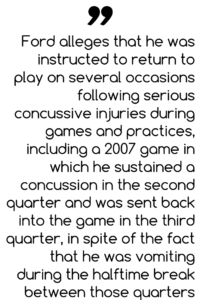According to a recent piece published in the Denver Post, a group of food distribution companies is filing an anti-trust suit against a number of chicken producers alleging collusion to drive up prices. Some of the actions that have been alleged include slaughtering chickens before they were grown enough to be sold, selling or breaking eggs before they could hatch, and even buying one another’s product. The chicken producers, which include such companies such as Pilgrim’s Pride and Tyson, have even been accused of keeping their breeding stock low to limit supplies and therefore keep prices inflated for the foreseeable future.
The alleged collusion may have exacted a 50 percent premium in chicken prices at the grocery store. As the Huffington Post reported in 2014, chicken has become more popular than beef in the United States, due to higher beef prices and health-conscious consumers, so many were affected,
 The chicken producers deny any collusion. National Chicken Council President Mike Brown suggested in an October 2014 article that the underlying reason for higher chicken prices has been an increase in the price of feed caused by the diversion of corn to produce ethanol. An article in the Financial Times reports that the price of corn spiked in both 2008 and 2012, ascribed to drought effects, but corn had declined in price so that it is currently at levels last seen before the ethanol mandate was enacted in 2007.
The chicken producers deny any collusion. National Chicken Council President Mike Brown suggested in an October 2014 article that the underlying reason for higher chicken prices has been an increase in the price of feed caused by the diversion of corn to produce ethanol. An article in the Financial Times reports that the price of corn spiked in both 2008 and 2012, ascribed to drought effects, but corn had declined in price so that it is currently at levels last seen before the ethanol mandate was enacted in 2007.
The litigants, led by New York food distributor Maplevale Farms, believe that they have connected the dots to indicate price collusion in the chicken-producing industry. Lawyers for the plaintiffs believe that they can show communication between various chicken producers that led to cutbacks in production throughout the sector in 2007 and 2008, leading to price spikes starting in 2009.
However, prices began to fall again in 2010 and 2011. The suit alleges that the chicken producers colluded again, even going so far as selling eggs to Mexico rather than building up stock. Currently, with the avian flu export ban lifted and feed prices declining, profit margins are rising for chicken producers.
Now the task for the litigants is to prove collusion by inference, which may be easier said than done.



 Iowa law stipulates that anyone who spreads obscene materials to minors has committed a crime known as sexual exploitation. Although in this case, and others like it in Iowa, the minor shared the photos, it is still considered to be either a Class C or Class D felony offense. The teenaged girl and her family assert that this is perhaps bad judgment but certainly not criminal. They have filed a lawsuit to prevent the Marion County Attorney from charging the girl with sexual exploitation.
Iowa law stipulates that anyone who spreads obscene materials to minors has committed a crime known as sexual exploitation. Although in this case, and others like it in Iowa, the minor shared the photos, it is still considered to be either a Class C or Class D felony offense. The teenaged girl and her family assert that this is perhaps bad judgment but certainly not criminal. They have filed a lawsuit to prevent the Marion County Attorney from charging the girl with sexual exploitation.
 Exxon is claiming they will fight these claims in the lawsuit and the company spokesperson,
Exxon is claiming they will fight these claims in the lawsuit and the company spokesperson, 


 However, what is particularly notable about this case is that the accident victim settled her claim for $725,000 against the night club that had served the drunk driver. Many states have what are known as “dram shop laws”, which enable the victims of drunk drivers to sue the bar or restaurant that served the driver alcohol. Bartenders and alcohol vendors are typically held to the “obvious intoxication” standard; under this standard, an alcohol vendor can be found responsible for any damages caused by their patrons if they continue to serve alcohol past the point that they either knew or should have known that the customer was intoxicated to a degree that posed a threat to the customer himself or others on the road.
However, what is particularly notable about this case is that the accident victim settled her claim for $725,000 against the night club that had served the drunk driver. Many states have what are known as “dram shop laws”, which enable the victims of drunk drivers to sue the bar or restaurant that served the driver alcohol. Bartenders and alcohol vendors are typically held to the “obvious intoxication” standard; under this standard, an alcohol vendor can be found responsible for any damages caused by their patrons if they continue to serve alcohol past the point that they either knew or should have known that the customer was intoxicated to a degree that posed a threat to the customer himself or others on the road.
 of lacerations, according to the lawsuit.
of lacerations, according to the lawsuit.
 In 2012, three nonprofit housing organizations filed suit, alleging that the city flouted state and federal anti-discrimination laws regarding housing for the disabled. The suit claimed people with disabilities were shown supposedly accessible apartments with doorways too narrow for wheelchair accommodation and bathrooms and kitchens without sufficient space for wheelchair users. Under federal law, such apartments require features such as bathroom grab bars and lower counters in kitchens. In addition, the relatively few apartments designed for the disabled often had non-disabled residents residing in them. Although complaints were filed, the city and its redevelopment agency reportedly failed to take action.
In 2012, three nonprofit housing organizations filed suit, alleging that the city flouted state and federal anti-discrimination laws regarding housing for the disabled. The suit claimed people with disabilities were shown supposedly accessible apartments with doorways too narrow for wheelchair accommodation and bathrooms and kitchens without sufficient space for wheelchair users. Under federal law, such apartments require features such as bathroom grab bars and lower counters in kitchens. In addition, the relatively few apartments designed for the disabled often had non-disabled residents residing in them. Although complaints were filed, the city and its redevelopment agency reportedly failed to take action.
 Most unsettling are the claims made by former UK wide receiver DeMoreo Ford, who played from 2005 to 2009. Ford’s coach at this time, Rich Brooks, told reporters in 2008 that Ford had been advised by his doctors to end his career in football due to number of concussive injuries he had sustained at that point. Ford alleges that he was instructed to return to play on several occasions following serious concussive injuries during games and practices, including a 2007 game in which he sustained a concussion in the second quarter and was sent back into the game in the third quarter, in spite of the fact that he was vomiting during the halftime break between those quarters. Ford’s lawsuit states that he continues to suffer the residual effects of untreated head trauma, experiencing severe headaches, depression, mood swings and more.
Most unsettling are the claims made by former UK wide receiver DeMoreo Ford, who played from 2005 to 2009. Ford’s coach at this time, Rich Brooks, told reporters in 2008 that Ford had been advised by his doctors to end his career in football due to number of concussive injuries he had sustained at that point. Ford alleges that he was instructed to return to play on several occasions following serious concussive injuries during games and practices, including a 2007 game in which he sustained a concussion in the second quarter and was sent back into the game in the third quarter, in spite of the fact that he was vomiting during the halftime break between those quarters. Ford’s lawsuit states that he continues to suffer the residual effects of untreated head trauma, experiencing severe headaches, depression, mood swings and more.
